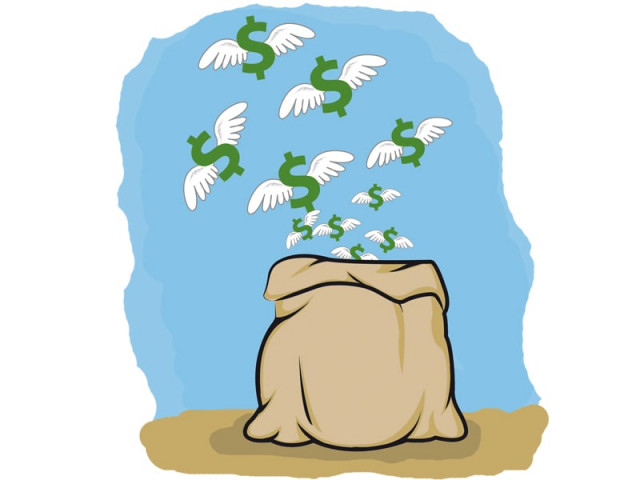Unattended problems
It is time for the government to confront the elephant in the room and tackle militancy head on.

The problem, however, lies in the simple fact that Pakistan is not considered an attractive place by foreign investors to park their money. PHOTO: FILE
In the short run, the bleeding reserves can be fixed through the bailout loan tranches released by the International Monetary Fund (IMF). But the decline in foreign exchange reserves has its origins in problems that far predate either this or the preceding IMF bailout. In the absence of a large trade surplus, the only way to shore up foreign exchange reserves is to attract investment from abroad. Remittances from overseas Pakistanis help but they are not enough on their own.

The problem, however, lies in the simple fact that Pakistan is not considered an attractive place by foreign investors to park their money. And addressing that problem will require a lot more than a few incentive schemes. It is not as though Pakistan is not on the map for global investors at all. Indeed, the parade of CEOs of major global food and consumer goods companies visiting Karachi recently is evidence of the fact that the world is well aware of the potential of the Pakistani market. What makes foreign investors hold back, however, is our government — and our society’s — unwillingness to confront our problem with violent extremism.
Economics and politics are intertwined in most countries, but in Pakistan’s case, our politics is holding our economy hostage. The narrative that the Taliban are somehow rational actors who can be negotiated with is having real world consequences that scare away foreign capital, deplete our foreign exchange reserves, cause a decline in the rupee, and by extension, cause a rise in inflation through higher imported oil prices. It is time for the government to confront the elephant in the room and tackle militancy head on. Otherwise, all other economic policy initiatives will be meaningless.
Published in The Express Tribune, December 3rd, 2013.
Like Opinion & Editorial on Facebook, follow @ETOpEd on Twitter to receive all updates on all our daily pieces.















COMMENTS
Comments are moderated and generally will be posted if they are on-topic and not abusive.
For more information, please see our Comments FAQ